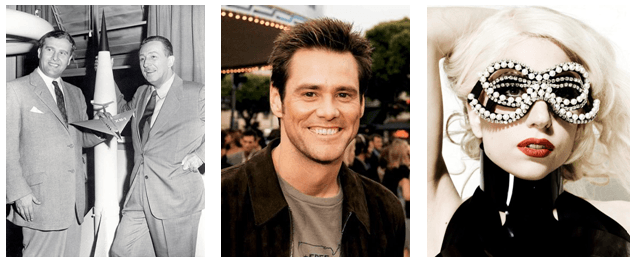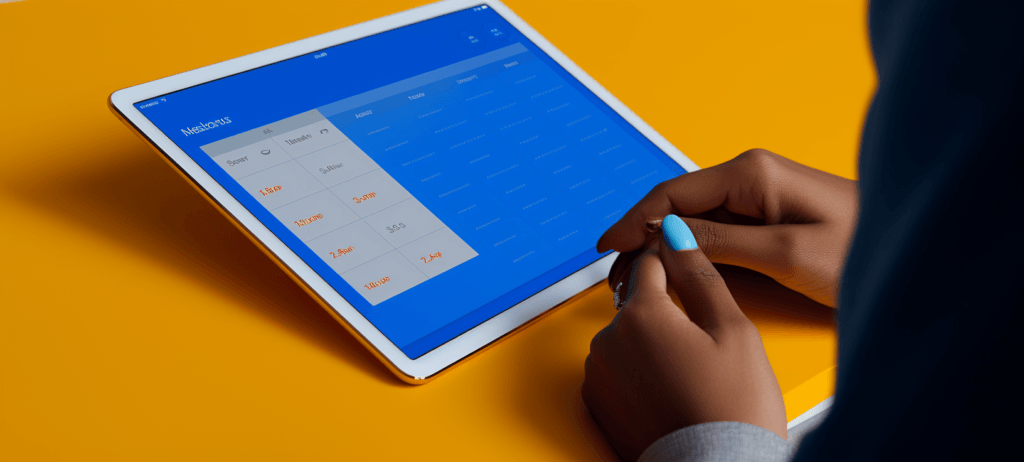- Home
- Blog
- Internet Sales How to Sell to Everyone: The 4 Personality Types
How to Sell to Everyone: The 4 Personality Types
-
 11 min. read
11 min. read
-
 Xander Becket
Xander Becket Content Writer
Content Writer
- Xander is a Senior Internet Marketing Strategist at WebFX. You can find him riding his bike or longboard towards donuts.
Everyone fits into one of four major personality types. It may seem stereotypical to pigeonhole every person in the world into one of four boxes, but it’s important to know about these types for the sake of the buying process. Over the course of this process, each type has different needs.
Do you know how to sell to different personality types? Your website text, marketing materials, and sales team must speak to each personality type individually to be the most effective. Should you go for the competition angle, and emphasize your benefits over others offering the same service?
Or should you try the exciting angle instead? The approach you take depends on the personality of your customer. Basically, you need a selling personality if you want to convince these sales personality types to buy.
Read on to learn about selling to different personality types. There are a bunch of different names for the four personalities, including:
- Sanguine, Choleric, Melancholic, Phlegmatic
- D, I, S, C
- Assertive, Amiable, Expressive, Analytical
- Competitive, Spontaneous, Humanistic, Methodical
We’ll break them down by the last four: competitive, spontaneous, humanistic, and methodical. We think they’re the most aptly named, and the easiest to explain with celebrity examples.
The Competitive Personality
 Also known as the Type-A personality. They’re in it to win it and get a thrill from crushing competitors. To them, life is survival of the fittest and they put a lot of energy into making sure that they stay ahead of everybody else.
Also known as the Type-A personality. They’re in it to win it and get a thrill from crushing competitors. To them, life is survival of the fittest and they put a lot of energy into making sure that they stay ahead of everybody else.
Contrary to how they may be perceived, the goal isn’t more money or a great life (although both of those things come from crushing the competition). Competitive personality types seek to take charge of situations and present themselves as a leader. Donald Trump, Michael Phelps and Mark Zuckerberg all display the personality traits of a competitive personality.
They are driven and focused and are famous for the hard work that went into creating their careers. Donald Trump, as a business man, Michael Phelps, as an Olympic swimmer, and Mark Zuckerberg, as the creator of Facebook, have all had to be goal-oriented personality types to get where they are today.
Signs of a Competitive Personality:
People with competitive personalities tend to be highly independent, direct, and decisive. They are deadline-driven and change-oriented.
They may come across as impatient or high-strung, and may seem rushed when they communicate with you.
How to sell to them:
Appeal to that inner competitor. Let them know how your service helps them get ahead. Regale them with tales of 85% market share and squashing upstart competitors.
Frame your service as a competitive advantage. Mention how it can help them save time, how quickly your service can be provided or what a practical solution your service provides for the problems they are experiencing.
The Spontaneous Personality
 This is my personality type. It’s also known as a Type-B personality. We live for the fun of the project.
This is my personality type. It’s also known as a Type-B personality. We live for the fun of the project.
We don’t care too much about competition; we love that exciting feeling we get when we do something interesting. The world is full of possibilities and ideas, and a great idea that changes everything is our Holy Grail. Walt Disney, Jim Carrey and Lady Gaga are examples of spontaneous personality types because they are all well-known for their strong senses of creativity, imagination and extraversion.
Walt Disney was known for being a big picture kind of guy, and his creativity influenced generations of children and adults alike. Jim Carrey and Lady Gaga are both very well known for their high levels of energy and their imaginative dedication to their work.
Signs of a Spontaneous Personality:
People with spontaneous personalities are creative and enthusiastic. They tend to be very social and enjoy interacting with others.
Far from having a methodical personality, spontaneous personalities don’t usually enjoy static routines and are easy-going and extraverted. They enjoy exaggeration and may speak in hyperboles.
How to sell to them:
Get excited. Is your product cutting-edge and new?
Will it be a blast to work on and be awesome in the end? Let us know! Speak in exclamation points!
!!! Also, leave out the details. They don’t matter to us, and we’re not interested in reading them.
We live for the big picture so talk about that. Let us know how your product or service can help us interact with others, or how it can help us gain public recognition. Keep in mind, we act quickly but we also lose interest quickly.
You’ve got to be immediately compelling and exciting. If you’re boring, we’ll go to someone who’s more fun.
Humanistic Personality
 People, people, people. Humanistic personalities care intensely about the people around them and continually put others’ needs ahead of their own.
People, people, people. Humanistic personalities care intensely about the people around them and continually put others’ needs ahead of their own.
They focus on the feelings of others and will go to great lengths to maintain a happy and healthy environment for all of the people close to them. Celebrity philanthropists like Princess Diana, Bono and Oprah Winfrey are all examples of humanistic personality types because they are famous for helping others, and especially those less fortunate than themselves. Princess Diana was one of the first high-profile celebrities to work with AIDS victims.
Bono is also well-known for his devotion to the AIDS cause, as well as his musical work in the Hope for Haiti telethon in 2010. Oprah Winfrey, in addition to hosting her help- and hope-oriented talk show, is also well-known for contributing millions of dollars to numerous charities and organizations.
Signs of a Humanistic Personality:
People with a humanistic personality tend to be very sympathetic and friendly. They respect the routine of things and dislike sudden changes in schedule or working environment. Humanistic personality types are extremely supportive of others and are great members of a team.
They are patient and enjoy having clearly defined expectations and rules.
How to sell to them:
Show happy people. Roll out all of your best testimonials, especially the ones from other humanistics, about how much your service boosted morale, made everyone happy, etc. The humanistic personality cares most about people and feelings: so make sure they feel comfortable that your service will be good for their team.
Try to downplay any aspect of your service that will result in a change for their company or lifestyle by focusing on the positive, customer-friendly features you have to offer.
Methodical Personalities
 Methodical types crave information. They don’t feel comfortable making a decision until all the facts are available, laid out, and analyzed. They are “data” people — they do due diligence to make sure they have all the facts to accurately predict the outcome of a project. They are concerned about the quality and accuracy of their work and decisions.
Methodical types crave information. They don’t feel comfortable making a decision until all the facts are available, laid out, and analyzed. They are “data” people — they do due diligence to make sure they have all the facts to accurately predict the outcome of a project. They are concerned about the quality and accuracy of their work and decisions.
Albert Einstein, Bill Gates and C-3PO from Star Wars serve as examples of methodical personality types. Although a fictional character, C-3PO demonstrates the methodical personality’s love of data since he is, indeed, a robot. Real-life examples of this personality type, however, can be found in Albert Einstein and Bill Gates, both of whom were considered geniuses in their own time.
Einstein is world renowned for his mathematical formulas and the data he analyzed to give us such modern luxuries as his theory of general relativity. Bill Gates, on the other hand, was the famous methodical personality who helped pioneer and create personal computers.
Signs of a Methodical Personality:
Methodical personality types do a lot of research before making a decision, and may ask you a lot of questions to get the information that they want. They like services and products that can systematically produce consistent and predictable results.
People with methodical personalities will also analyze all of the possibilities of what could go wrong with a product or service, and they certainly don’t mind reading the fine print. They also aren’t very social and don’t like feeling rushed into things.
How to sell to them:
Numbers. Methodicals place the value of facts above all else, and in most sales situations, the most unbiased and trustworthy facts are numbers.
If you’ve increased productivity over 20% for 80% of your 125 customers, give them that data to crunch. Only after they have a sufficient amount of facts will they feel comfortable making a decision. Don’t rush them into making a choice, and learn to be comfortable with a little social awkwardness on their part.
Take the time to answer all of their questions thoroughly and go so far as to offer additional websites or resources where they can learn more about your product or service. The more information they have to analyze, the more at home they will feel.
How to Sell to All Four Personalities (At Once)
Since all of these personality types are a little different, you may see it as a challenge to sell to all four types. At once.
On the same website. Is it even possible?  Yes, it’s possible to sell to all 4 personality types.
Yes, it’s possible to sell to all 4 personality types.
Personality type sales are a balancing act to accommodate the needs of all four types, but it can be done. It’s a matter of knowing what’s most important to each type, where they’re going to go to find it, and making sure they can get what they need when they arrive there.
Competitive Types: To accommodate this personality, you should have a results page showing exactly what makes you better than your competition. Although you probably shouldn’t mention competitors by name on your site, you can certainly name-drop a little bit once you get them on the phone.
A results page can actually help sell to all four types, but it’s most important for competitive personalities who want to know how they can be the very best.
Spontaneous Types: Spontaneous personalities can be difficult because they probably don’t care about your testimonials, and don’t want to waste time reading about product features. But you can catch their attention with “shiny things,” like videos showing your products in use, or easy-to-digest blog posts with large graphics. Getting their attention is half the battle.
One way we try to get spontaneous personality types to contact us is by adding a contact form (in a different color) to the bottom of every page. It’s hard to miss.
Humanistic Types: Include testimonials on your website. We have some video testimonials from clients, which are a great way to successfully convince leads that what people say about us is real.
Anyone can make up a quote or publish a fake review on another page, but video is something else altogether. Humanistic types would probably also love to hear about how your business has improved the surrounding community, or how many lives you’re impacting by offering your product or services. Do you volunteer?
Put a blurb about it on your site. You might have to brag just a little to sell to this type.
Methodical Types: Much like a competitive personality type, methodical buyers want to see results. However, they’re going to be far more interested in the statistics than anything else.
If you’re comfortable publishing data on your website, do this. The cold hard facts will help sell your service more than a sales pitch. We accomplish this by offering a real results page, where we show specific statistics for different clients like search engine traffic, conversion rate, time on site, and bounce rate.
Although your website should cater to all four types, your individual communication can be more tailored. Later on in the sales funnel, after you’ve made contact with the lead, you can probably determine what type they are via a phone call or a long email. Try asking some questions and noting how they respond.
What do they focus on? What do they say is the most important to them? Do they sound bored when you talk numbers, or excited?
Once you’ve identified their type, you can tweak your approach to the process to better suit their needs. Your potential clients are not all the same, so your strategy for communicating with them shouldn’t be, either. Take the time to put together a way of explaining your product or service that will resound best with each individual’s personality, and present it in a way that is easy to understand.
This will require some extra effort on your part, but will be well worth it when your potential client receives the information they need right off the bat. Do you see yourself in any of these four personality types? Or are you a hybrid of two or more?
Leave a comment and let us know!
-
 Xander is a Senior Internet Marketing Strategist at WebFX. You can find him riding his bike or longboard towards donuts.
Xander is a Senior Internet Marketing Strategist at WebFX. You can find him riding his bike or longboard towards donuts. -

WebFX is a full-service marketing agency with 1,100+ client reviews and a 4.9-star rating on Clutch! Find out how our expert team and revenue-accelerating tech can drive results for you! Learn more
Try our free Marketing Calculator
Craft a tailored online marketing strategy! Utilize our free Internet marketing calculator for a custom plan based on your location, reach, timeframe, and budget.
Plan Your Marketing Budget

Looking for More?
Get expert ideas, industry updates, case studies, and more straight to your inbox to help you level up and get ahead.
"*" indicates required fields
Try our free Marketing Calculator
Craft a tailored online marketing strategy! Utilize our free Internet marketing calculator for a custom plan based on your location, reach, timeframe, and budget.
Plan Your Marketing Budget





